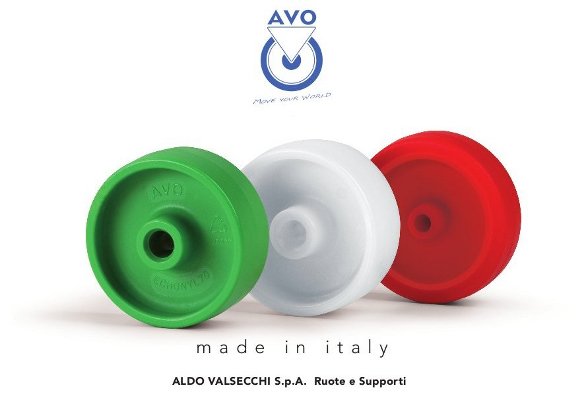|
PRODUCTS
| Info
| Hub rotation systems
|
 |
| |
|
On self-lubricating nylon bushes
The bush is the simplest sliding com-ponent: it is economical and robust, and is used on institutional castors and trolleys subject to limited use and slow movement.
Application of bushes depends on the material used in the wheels and body; if the body is made of polyamid, polypropylene or cast iron, which slide easily, bushes are not required. Nylon is one of the best materials for bushes, and is particularly appropri-ate for rubber wheels and sheet steel bodies.
Bushes do not normally require any special maintenance, unless they are used under particular operating condi-tions (such as high dust levels in the air), and are corrosion-resistant. Improper use of bushes by moving them too fast or with too heavy a load can result in overheating.
|
| |
|
| |
|
On roller bearings
Roller bearings are often used in trol-ley castors because they are practical and highly resistant.
Their shape suits them to application where space is limited. Bearings of this type do not normally require maintenance, as they are lubri-cated with long-lasting grease at the time of assembly.
The structure of roller bearings consists of a plastic or metal retainer, also avail-able in stainless steel, containing cylin-drical steel rollers which rotate between the axle tube and the wheel hub. This movement gives rise to rolling friction during rotation, which reduces the thrust of the wheel in relation to slid-ing friction, permitting movement of very heavy loads.
|
| |
|
| |
|
On ball bearings
Where good sliding is required even at high speed, along with resistance to heavy loads under all environmental conditions, a single row of ball bear-ings (or precision ball bearings) is the most common solution.
The rolling bodies are tempered balls contained in a special bearing which slide between an outer ring and an inner ring; an outer ring (type Z no-con-tact seal) is added to protect against dust.
One or more seals (no-contact seal, RS or 2RS ball bearings) may be added where necessary. Stainless steel ball bearings are also available; both types require no spe-cial maintenance, as they are lubri-cated with a long-lasting lubricant dur-ing assembly.
There is one more type of sliding com-ponent: the conical ball bearing. Most commonly used on institutional castors, this type of bearing has ball-shaped rolling bodies which, once introduced in a bearing, slide between the parts of the conical ball bearing; the entire structure is tempered and is greased during assembly.
|
|
|
